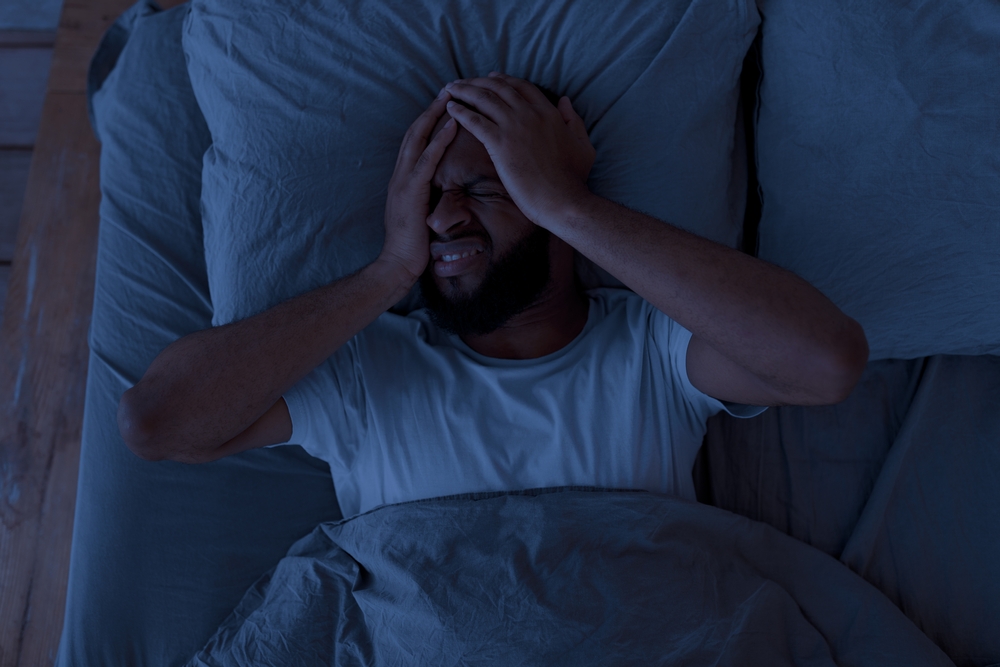The night stretches endlessly when you’re lying awake, worrying about sleep. For millions of people, sleep anxiety creates a frustrating cycle where concerns about falling asleep actually prevent restful slumber. Understanding this complex relationship between anxiety and sleep is the first step toward breaking free from this exhausting pattern.
Understanding the cycle of sleep anxiety
Sleep anxiety manifests as a persistent worry about getting enough sleep, often becoming a self-fulfilling prophecy. As bedtime approaches, the pressure to fall asleep increases, triggering a stress response that makes relaxation nearly impossible. This heightened state of alertness can turn what should be a natural process into an overwhelming challenge.
The impact extends far beyond nighttime hours. Poor sleep affects emotional regulation, cognitive function, and physical health. When anxiety interferes with sleep, it can create a cascade of daytime symptoms including irritability, difficulty concentrating, and increased sensitivity to stress, which in turn makes peaceful sleep even more elusive the following night.
Many factors can contribute to sleep anxiety, including work stress, traumatic experiences, health concerns, and certain medications. Understanding your personal triggers helps develop targeted strategies for managing them effectively.
Breaking the cycle through lifestyle changes
Creating an environment and routine conducive to restful sleep plays a crucial role in managing sleep anxiety. Start by establishing a consistent sleep schedule, going to bed and waking up at the same time every day, even on weekends. This helps regulate your body’s natural sleep-wake cycle, making it easier to fall asleep naturally.
Physical activity during the day can significantly improve sleep quality, but timing matters. Aim to complete vigorous exercise at least three hours before bedtime to allow your body temperature and energy levels to return to normal. Gentle stretching or yoga in the evening can help transition into a more relaxed state.
Your sleep environment should promote tranquility. Keep your bedroom cool, dark, and quiet. Consider using blackout curtains, white noise machines, or earplugs if necessary. Remove electronics that emit blue light, which can interfere with your body’s production of sleep-promoting melatonin.
Developing a pre-sleep routine
A calming bedtime routine signals to your brain that it’s time to wind down. Begin this routine 30-60 minutes before your intended sleep time. Consider incorporating these evidence-based relaxation techniques:
Progressive muscle relaxation helps release physical tension by systematically tensing and relaxing different muscle groups. This practice can help quiet both mind and body.
Deep breathing exercises activate the parasympathetic nervous system, promoting relaxation. Try the 4-7-8 breathing technique: inhale for four counts, hold for seven, and exhale for eight.
Mindfulness meditation can help break the cycle of anxious thoughts. Focus on the present moment rather than worrying about sleep or tomorrow’s responsibilities.
Professional treatment approaches
When self-help strategies aren’t enough, professional intervention can provide additional support. Cognitive Behavioral Therapy for Insomnia (CBT-I) has shown remarkable effectiveness in treating sleep anxiety. This structured program helps identify and change thoughts and behaviors that interfere with sleep.
CBT-I typically includes several components:
Sleep restriction therapy temporarily limits time in bed to build sleep pressure and improve sleep efficiency.
Stimulus control therapy helps rebuild the association between your bed and sleep by limiting non-sleep activities in the bedroom.
Cognitive restructuring addresses unhelpful thoughts and beliefs about sleep that fuel anxiety.
Some people may also benefit from medication, either for anxiety management or sleep support. However, these should be discussed thoroughly with healthcare providers, as some medications can affect sleep architecture or create dependence.
Natural remedies and supplements
Several natural approaches may help support better sleep without prescription medications. Herbal teas like chamomile, valerian root, and passionflower have traditional use as sleep aids. Magnesium supplements may help relax muscles and calm the nervous system.
Essential oils such as lavender can promote relaxation when used in diffusers or diluted in bath water. However, always consult healthcare providers before starting any supplement regimen, as even natural remedies can interact with medications or have side effects.
The role of diet and nutrition
What you eat and drink can significantly impact sleep quality. Avoid caffeine after midday, as its effects can last up to 12 hours in some people. Limit alcohol, which might help you fall asleep initially but often leads to disrupted sleep later in the night.
Time your meals thoughtfully. A light snack before bed can prevent hunger from disrupting sleep, but heavy meals too close to bedtime may cause discomfort. Consider foods rich in tryptophan, magnesium, and complex carbohydrates, which can support healthy sleep patterns.
Managing daytime anxiety
Addressing daytime anxiety often improves nighttime sleep. Practice stress management techniques throughout the day:
Regular meditation or mindfulness practices can reduce overall anxiety levels. Time management strategies help prevent work stress from spilling into evening hours. Journaling before bed can help release worried thoughts. Setting boundaries with work and social commitments ensures adequate downtime.
When to seek professional help
Consider consulting a sleep specialist if sleep anxiety persists for more than a month or significantly impacts your daily life. Warning signs that warrant professional attention include:
Persistent difficulty falling or staying asleep Panic attacks at bedtime Daytime fatigue affecting work or relationships Worsening anxiety or depression symptoms
Remember that seeking help is a sign of strength, not weakness. Sleep specialists can provide comprehensive evaluation and treatment plans tailored to your specific situation.
Sleep anxiety can feel overwhelming, but it’s important to remember that it’s both common and treatable. With patience, consistency, and the right combination of strategies, you can develop a healthier relationship with sleep and enjoy more restful nights.














